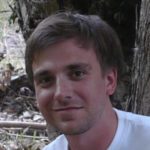Link to Pubmed [PMID] – 38475843
Link to DOI – 10.1186/s12936-024-04890-6
Malar J 2024 Mar; 23(1): 75
The Great Mekong Subregion has attained a major decline in malaria cases and fatalities over the last years, but residual transmission hotspots remain, supposedly fueled by forest workers and migrant populations. This study aimed to: (i) characterize the fine-scale mobility of forest-goers and understand links between their daily movement patterns and malaria transmission, using parasites detection via real time polymerase chain reaction (RT PCR) and the individual exposure to Anopheles bites by quantification of anti-Anopheles saliva antibodies via enzyme-linked immunosorbent assay; (ii) assess the concordance of questionnaires and Global Positioning System (GPS) data loggers for measuring mobility.Two 28 day follow-ups during dry and rainy seasons, including a GPS tracking, questionnaires and health examinations, were performed on male forest goers representing the population at highest risk of infection. Their time spent in different land use categories and demographic data were analyzed in order to understand the risk factors driving malaria in the study area.Malaria risk varied with village forest cover and at a resolution of only a few kilometers: participants from villages outside the forest had the highest malaria prevalence compared to participants from forest fringe’s villages. The time spent in a specific environment did not modulate the risk of malaria, in particular the time spent in forest was not associated with a higher probability to detect malaria among forest-goers. The levels of antibody response to Anopheles salivary peptide among participants were significantly higher during the rainy season, in accordance with Anopheles mosquito density variation, but was not affected by sociodemographic and mobility factors. The agreement between GPS and self-reported data was only 61.9% in reporting each kind of visited environment.In a context of residual malaria transmission which was mainly depicted by P. vivax asymptomatic infections, the implementation of questionnaires, GPS data-loggers and quantification of anti-saliva Anopheles antibodies on the high-risk group were not powerful enough to detect malaria risk factors associated with different mobility behaviours or time spent in various environments. The joint implementation of GPS trackers and questionnaires allowed to highlight the limitations of both methodologies and the benefits of using them together. New detection and follow-up strategies are still called for.


